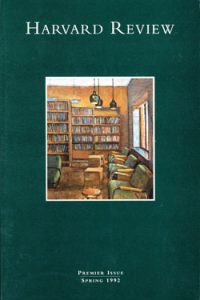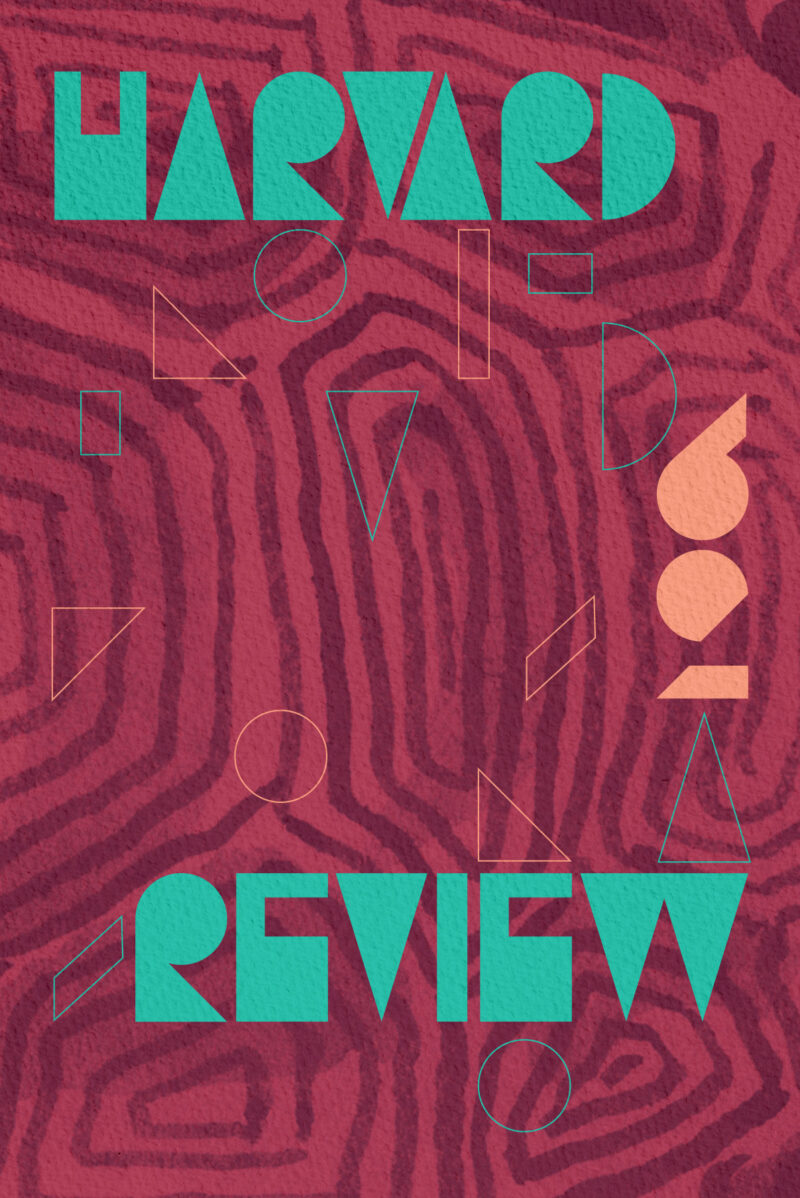MISSION & HISTORY
MISSION
Harvard Review publishes new poetry, essays, fiction, drama, criticism, book reviews, and interviews. From its beginnings, the journal has been committed to showcasing the work of emerging writers alongside established voices, or, as we like to think of it, publishing writers who will be famous next to writers who already are.
Over the years we have published a number of important writers at an early stage of their careers, including Nam Le, Mary Ruefle, Jhumpa Lahiri, Carl Phillips, David Foster Wallace, and Mary Karr. Some of the authors we have debuted include Paul Harding, who won the Pulitzer Prize for Fiction in 2010; Ben Shattuck, whose first published story was selected for PEN America’s Best Debut Short Stories in 2017; Moira McCavana, whose debut story was published in the O. Henry Prize Stories Anthology in 2018, and Charles Yu, winner of the 2020 National Book Award for Fiction.
Editorially, we are interested in literary technique and agnostic when it comes to subject matter; we take each piece on its merits and seek a diversity of voices. We look for evidence of control, polish, deliberateness, authority and for work that strikes us as realizing its own ambitions, whatever those may be. In terms of design, the magazine draws on the aesthetic of the 1960s Black Sparrow Press, foregrounding typography and color and employing only abstract elements. We print on uncoated cover stock for a tactile feel and design our covers in thematically related pairs. Our cover designs by Alex Camlin have been repeatedly honored in PRINT magazine’s Regional Design Annual.
In print, we publish poetry, short stories, essays, and visual art; online, in addition to these genres, we also publish translations, interviews, criticism, and book reviews. Contributors to Harvard Review are regularly selected for Best American anthologies, The O. Henry Prize Stories and the Pushcart Prize Anthology.
HISTORY
In 1986 poet and novelist Stratis Haviaras, then Curator of the Woodberry Poetry Room in Harvard’s Lamont Library, founded a quarterly periodical called Erato. Its purpose was to publicize the activities of the Poetry Room and create a new forum for discussion of current literary matters and events. The first issue of Erato, which was just four pages long, featured a poem by Seamus Heaney, a short piece on Louis Simpson, and a news item from Harvard University Press. Tipped into the issue were three loose-leaf pages of book reviews, including reviews of works by Joseph Brodsky, Marguerite Duras, and Richard Ford.
Within three years the book review section had grown to over thirty pages and the publication was renamed Harvard Book Review. In 1992 Haviaras launched Harvard Review, a perfect-bound journal of some 200 pages, published semi-annually and incorporating the old Harvard Book Review. The journal provided a forum for criticism along with new poetry and short fiction. In 2000 Haviaras retired from Harvard and Christina Thompson was appointed editor. Oversight of the review shifted from Lamont Library to Houghton Library at this time.


